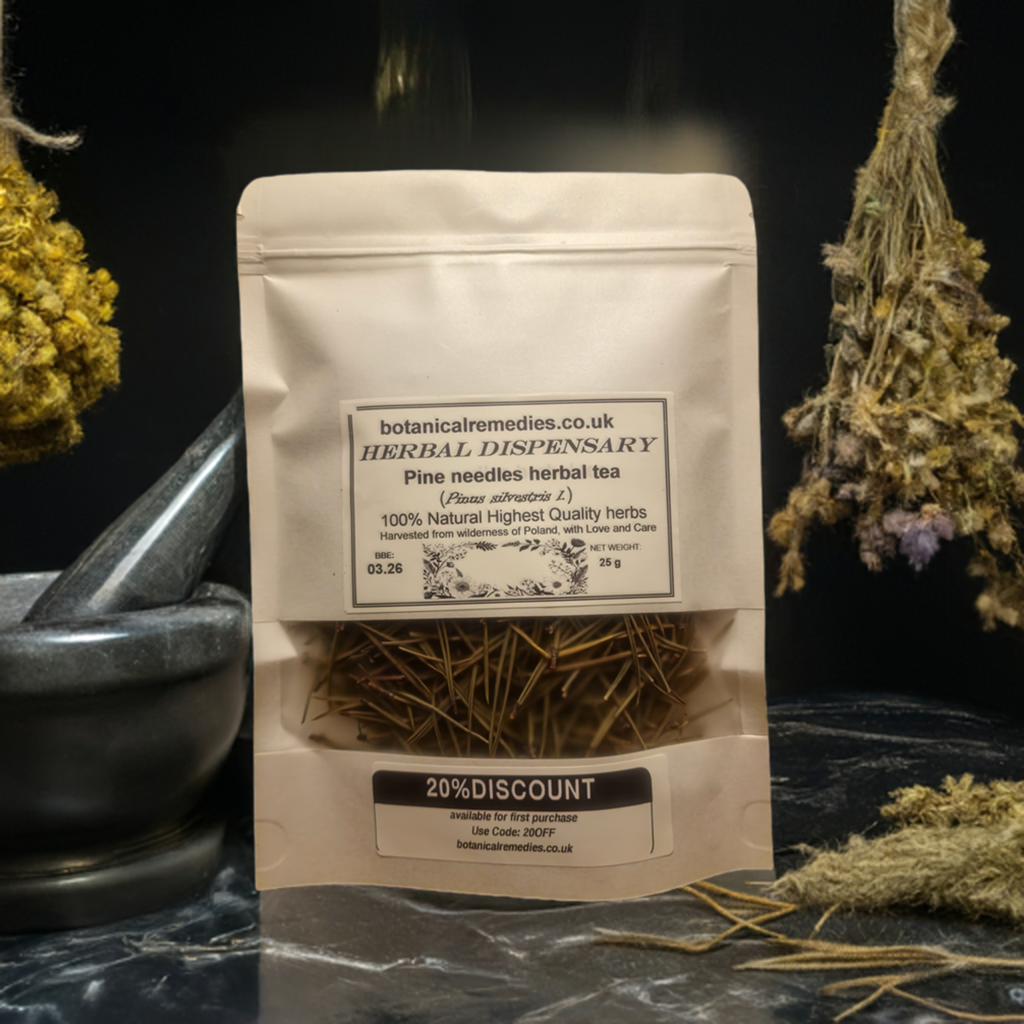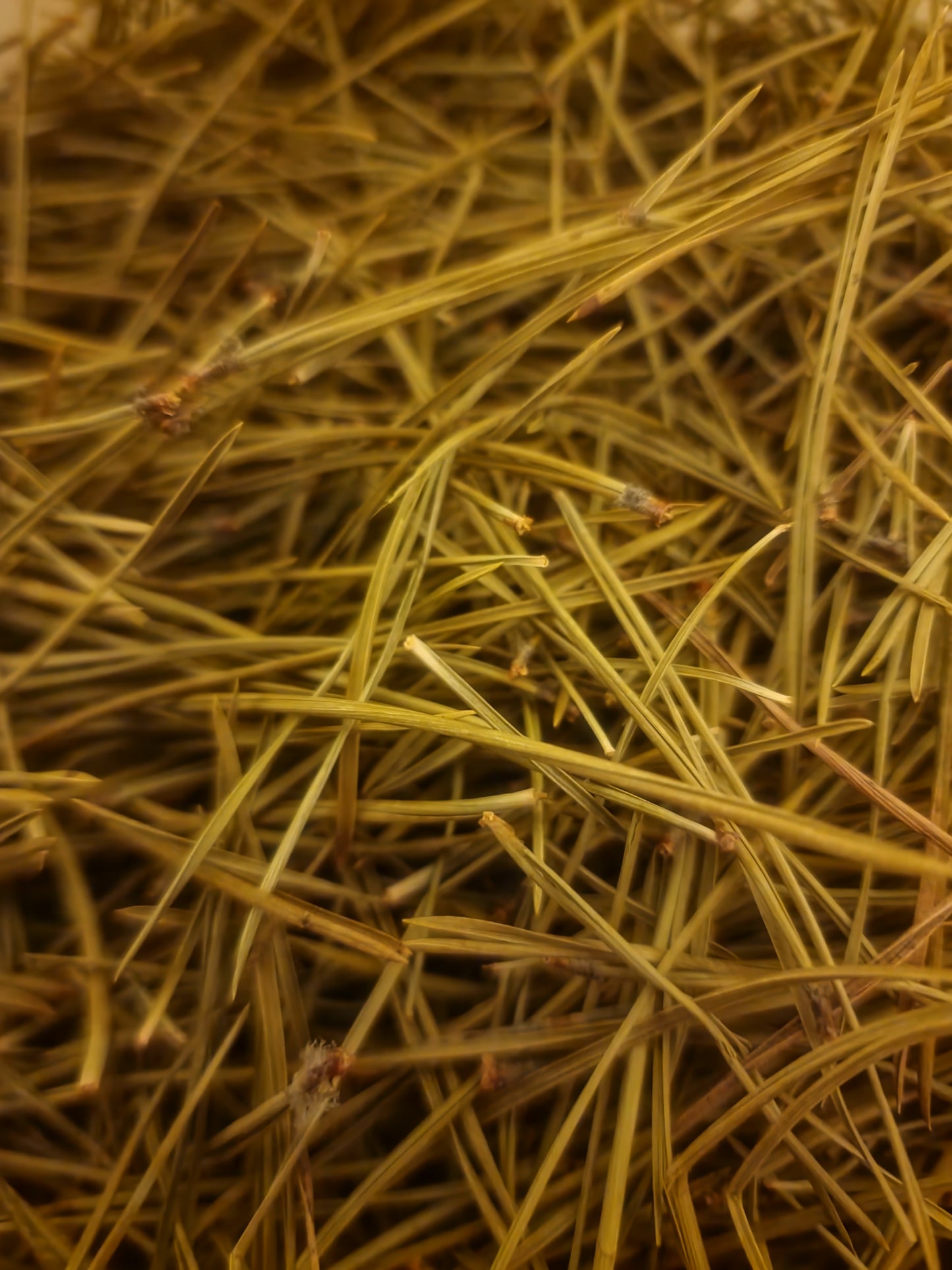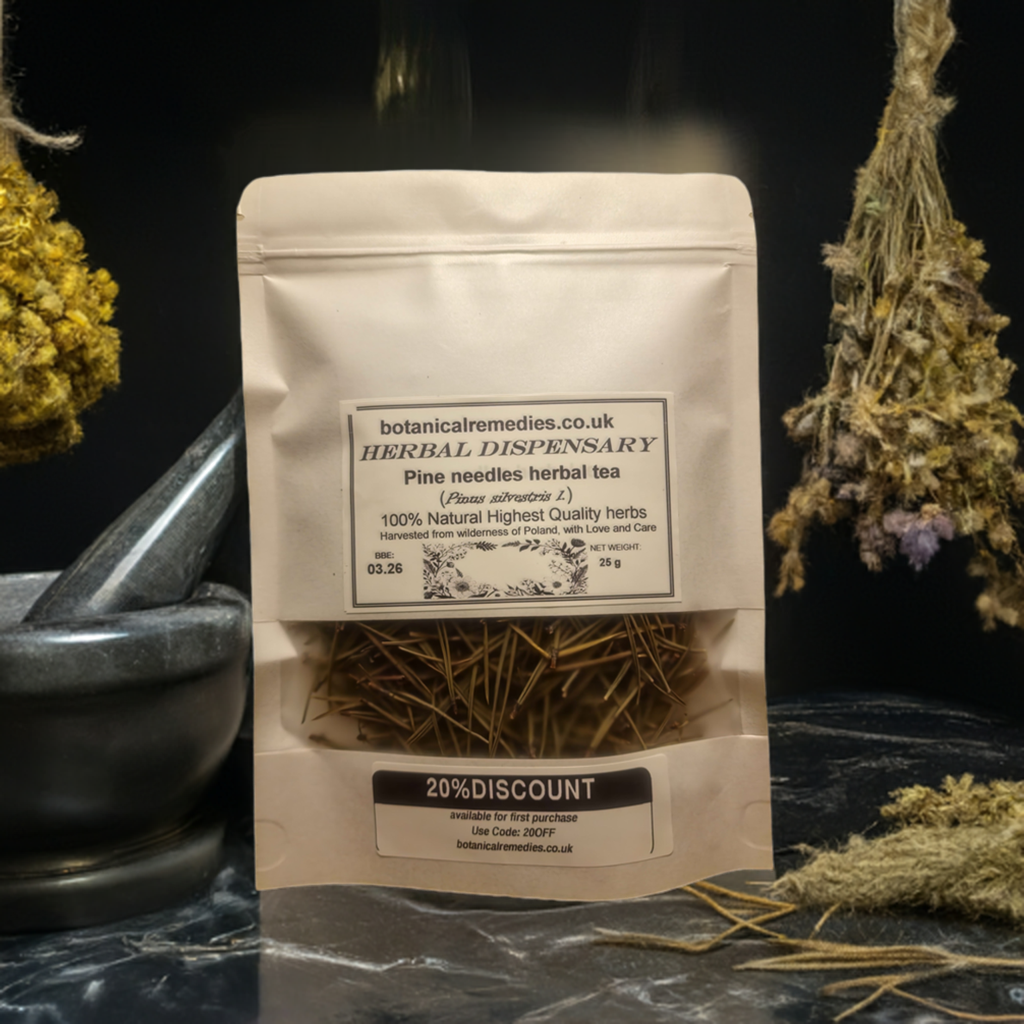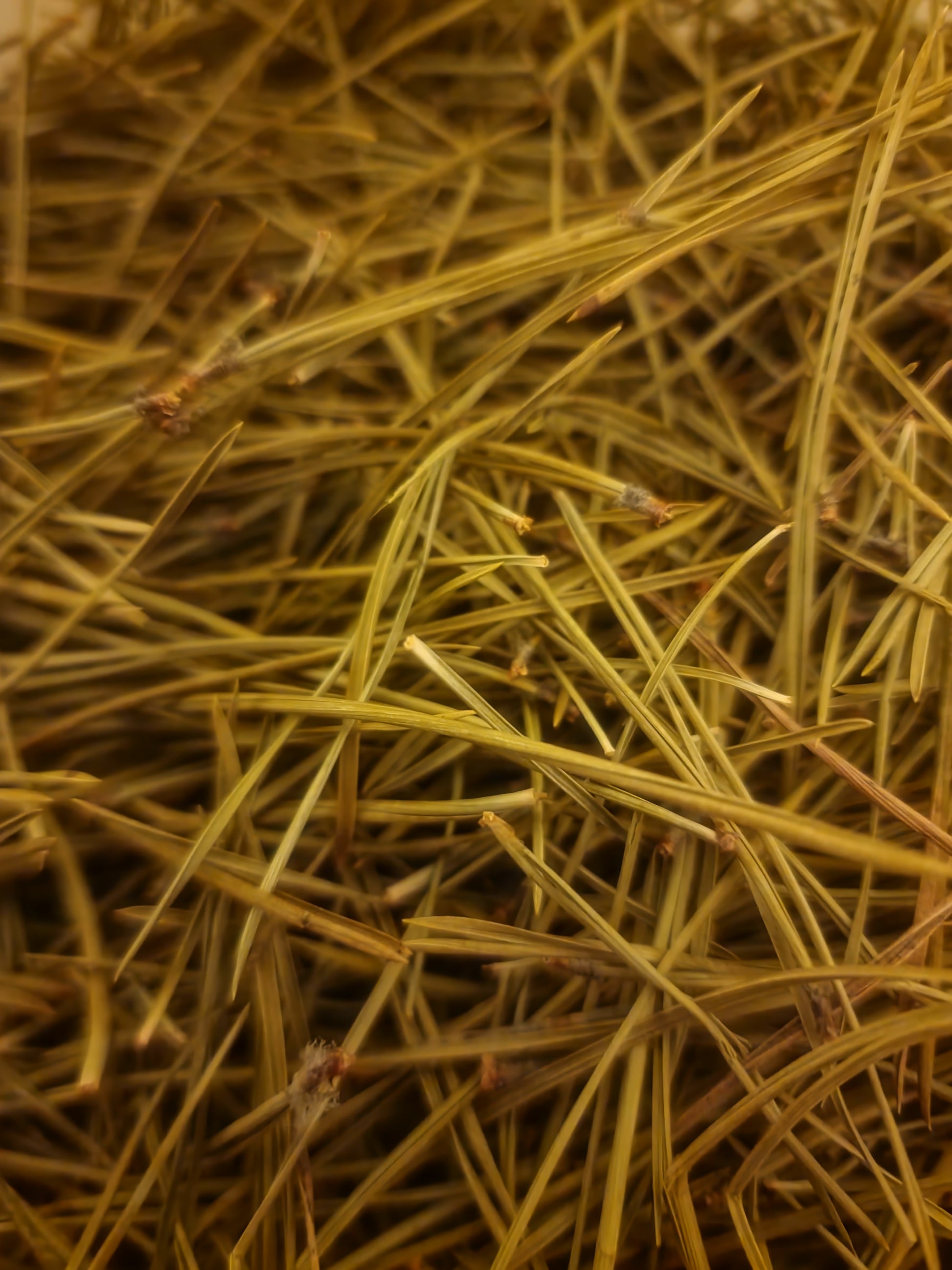Botanical remedies - Herbal Dispensary
Pine needle tea (Pinus sylvestris)
Pine needle tea (Pinus sylvestris)
Couldn't load pickup availability
Scot's Pine (Pinus sylvestris - L.) also known as Scotch Pine, Sosna zwyczajna bitter and aromatic taste tea, which has long history of traditional use.
Pine is known as a spiritual cleanser and incense. The Iroquois used to burn it as incense before moving into a vacant house to clean out unwanted spirits and negative energy. It is considered helpful in drawing steady money, clearing mental negativity.
It helps build confidence and stamina. Its scent is said to enhance a sense of freedom. Native Americans were also said to prevent scurvy by making tea out of the twigs and bark. They used the oil to keep away fleas, ticks, and other insects.
Not only did the Native Americans use pine bark as a staple, but in Sweden and Finland, pine bark bread has been made for centuries from rye flour, with the toasted and ground inner layer of the pine bark added. The Native American peoples from upstate New York, known as the Adirondack, translated to “bark eaters” in the Iroquois language.
The Sami people of Northern Europe harvested large sheets of pine bark in the spring, which were dried and stored as a staple food throughout the year.
In Taoism, old pine trees are much admired and venerated. They are considered a Tree of LIfe due to their ability to bend, survive, and endure. These trees are receptive (feminine/Yin) and expansive (male/Yang). Pine trees can withstand the winter snow and cold and survive in rocky, windy, drought conditions. Many Taoist monks ate pine cones, resin, and needles in their quest for immortality and to strengthen their bodies from harm.
In China, pine trees are one of the Three Friends of Winter (pine, plum trees, and bamboo), the three trees that stay green during the winter snows. Pine trees are also planted near graves to protect the dead from the mythical water dragon.
In Japan, pine trees are one of the most popular choices for the art of bonsai with many trees living to be hundreds of years old. Pine trees were used as decorations for the armor of samurai as a symbol of strength and masculinity.
Koreans see the pine as a symbol of longevity and virtue. The trees are viewed as honorable, strong, and wise beings, with some trees worshiped as divine beings who can bring good luck, prosperity, and good health. Pine trees are also viewed as a messenger that transports the souls of the dead to the afterlife, with many coffins being made of pine wood for this reason. Pine branches are often given at the birth of a child to protect them.
In Ancient Greece, the pine was sacred to Dionysus. The Ancient Romans considered the tree sacred. They would decorate them to celebrate Saturnalia (Dec 17-25th).
The Ancient Celts revered the pine as a tree of wisdom, vitality, and immortality. In their astrology, people born under the rule of Pine (Generally from February to early March and the end of August to early September with the exact dates depending on the lunar cycle.) were extremely tenacious and fulfilled their life goals. The Scots pine is one of Irelands, three native coniferous trees. The trees are recognized for their pioneering attributes as they are able to survive in hostile environments making an area more hospitable for other plants that can then take hold and flourish in the same areas.
Many Native Americans consider the pine tree a symbol of wisdom and longevity. It protects against illness, witchcraft, and hunger. The pine tree is a tribal clan in several of the Southwest tribes. The Nez Perce hold that the pine tree holds the secret of fire and guards this secret very closely. Other tribes view the pine as a Tree of Peace.
Suggested Use: It can be used for herbal tea 1-2 teaspoon to cup of boiling water, step for 15-30 minutes. Scot's Pine needles have also other uses, research beneficial uses of this herb or consult an Herbalist as to how this product can benefit you.
Contraindications: Contradicted with pregnancy and breastfeeding
Typical Ingredients: 100% pure Botanical, absolutely nothing added, dried Scot's Pine needles.
Vegetarian/Vegan Suitability: Suitable for Vegetarians and Vegans
Wild grown/Organic cultivated/Eco cultivated/Cultivated: Wild grown
Country of origin: Poland
Packaging: All products are hand packed in resalable paper bags to ensure maximum freshness
Quality assured
Share


excellent














